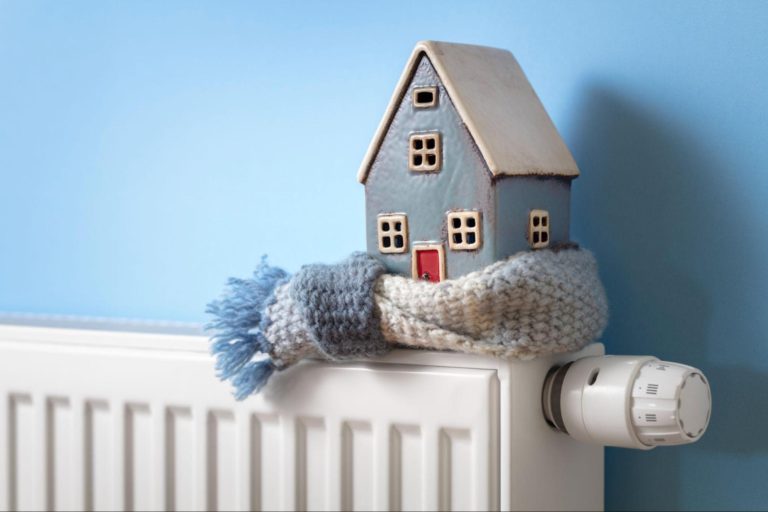Pre-Winter Checklist for Your Home Heating Oil System
As autumn’s crisp winds signal the beginning of winters, it also serves as a reminder to ensure that your home heating oil system is ready for the chilling months to come. A well-maintained heating system not only keeps your home warm and comfortable but also enhances energy efficiency and prevents costly breakdowns.
In this blog, get your hands on the pre-winter checklist, created to guide you through the necessary maintenance tasks, from inspecting your oil tank and checking for leaks to ensuring your heating system is running efficiently so that you can enjoy the beauty of winters from the cosiness of your home.
By taking these proactive steps, you can avoid common pitfalls and enjoy a smooth, worry-free heating experience throughout the winter season. Go through each critical component of your heating oil system, offering tips and best practices to ensure you’re fully prepared when the temperatures drop.
Pre-Winter Checklist for Your Home Heating Oil System

- Check Your Oil Tank for Any Damage
To ensure that your home heating oil system works the best, carefully examine the exterior of your oil tank for signs of wear, including rust, corrosion, or dents. You can check for any oil stains around the base, which could indicate leaks. Ensure the tank is properly mounted on a stable surface and securely anchored to prevent shifting during winter storms or extreme weather conditions.
- Check & Maintain Oil Levels
Before winter fully sets in, check your tank’s oil levels and make sure your tank is adequately stocked. It’s advisable to fill up ahead of the cold season, as demand for heating oil often increases in winter, which could lead to supply shortages or price hikes. Keep a regular check throughout the season to avoid running out when you need heat the most.
- Keep the Oil Filter Clean
A clean oil filter is important for maintaining the smooth flow of oil to your heating system. Over time, filters can become clogged with dirt, debris, and sludge. Replace or clean the filter before the start of the heating season to make sure it doesn’t obstruct the system’s operation, reducing efficiency or even causing breakdowns.
- Test the Thermostat
Your thermostat plays a crucial role in regulating your home’s temperature. Test it to make sure it’s responsive and accurately reading the indoor temperature. If you notice discrepancies, or if the system struggles to maintain the desired temperature, it may need recalibration or replacement to avoid energy wastage and ensure comfort during the winter.
- Check Fuel Lines Properly
Check all fuel lines leading from the oil tank to the burner for signs of wear and tear. Look for cracks, corrosion, or loosened fittings. Any damage or weakness in the fuel lines can lead to leaks, which are hazardous and can lead to system inefficiencies or malfunctions. Promptly address any visible issues with the help of a professional.
- Schedule a Professional Service

A professional tune-up before winter is a must for the optimal performance of your home heating oil system. A certified technician will clean and inspect key components such as the burner, heat exchanger, and ignition system. This not only ensures efficiency but also extends the lifespan of your system, reduces the risk of unexpected breakdowns, and maintains safe operation.
- Check the Ventilation System
Make sure that all vents, flues, and chimneys connected to your heating system are free from obstructions, such as debris, leaves, or bird nests. Blockages can prevent the proper exhaust of combustion gases, resulting in dangerous indoor air quality issues or carbon monoxide buildup. Proper ventilation is important for both system efficiency and safety.
- Review Emergency Shutoff Switches
Ensure that you know the location and operation of the emergency shutoff switch for your home heating oil system. This switch allows you to quickly shut down the system in case of any malfunction, leak, or other emergency. Make sure the switch is easily accessible and functioning properly in case you need to use it.
- Check for Unusual Noises or Odours
Unusual sounds, such as banging, whistling, or rumbling from your heating system may indicate a mechanical issue or some other damage. Similarly, any odd odours, especially the smell of oil, could signal leaks or burner problems. If you notice any of these warning signs, contact a professional technician immediately to investigate.
- Bleed the Radiators for Improved Efficiency
If your home heating oil system includes radiators, it may have air trapped inside, reducing the heating system’s efficiency and causing uneven heating. Bleeding the radiators allows this air to escape, ensuring hot water flows freely, which maximises the heating system’s performance. Regularly check and bleed radiators before and during winter to keep your home warm.
Benefits of Having a Pre-Winter Checklist

There are many benefits of keeping a pre-winter checklist and working on it before winters set in. Here are some major advantages:
- Helps Increase System Efficiency
When you regularly inspect and maintain your home heating oil system, it helps you ensure that the heating system runs efficiently during the cold months, which can help lower your energy consumption and heating costs by optimising fuel usage.
- Helps Extend Heating System’s Lifespan
Routine maintenance, such as cleaning filters and inspecting fuel lines, increases the life of your home heating oil system. By preventing any kind of wear and tear, you can avoid costly replacements and ensure that your system serves you reliably for many winters to come.
- Improved Home Safety
Properly maintaining your heating system minimises the risk of hazards like carbon monoxide leaks or fuel spills, keeping your household safe from dangerous conditions while ensuring your heating system operates safely.
- Ensures Comfort Throughout Winter
A well-maintained home heating oil system provides consistent warmth throughout your home, ensuring you stay comfortable even during freezing temperatures. Preventive measures help avoid cold spots, uneven heating, and system malfunctions.
- Helps Reduce the Risk of Breakdowns
A pre-winter checklist helps identify potential issues early, such as leaks, faulty components, or clogs. Addressing these problems beforehand reduces the likelihood of unexpected system breakdowns during the harshest winter weather.
Conclusion
Preparing your home heating oil system for the chilling winter months is an important task that ensures efficiency, safety, and comfort throughout the cold season. By following a pre-winter checklist, you can address potential issues before they become major problems, reducing the risk of breakdowns with repairs that may be costly, and ensuring your system runs smoothly when you need it most.
You can start by scheduling a professional service to inspect and clean your boiler or furnace, ensuring all components are in top working condition. Regular maintenance not only extends the lifespan of your heating system but also maximises its efficiency, saving you money on fuel costs. Also, don’t forget to replace air filters and check for any signs of wear and tear, which could affect your system’s performance.
Checking your heating oil levels is also important. Make sure your oil tank is filled before the winter sets in, and you can consider using a smart oil gauge to track consumption and avoid running out during peak demand. If you live in a place with harsh winters, it’s best to opt for automatic delivery services with your supplier, which will ensure that you will never be caught short.
Also, check your oil tank thoroughly for any signs of leaks, rust, or damage. A well-maintained tank is key to preventing environmental hazards and costly repairs. Make sure the area around the tank is clean and accessible, and consider installing a bunded tank or spill containment system for extra protection.
Finally, take steps to improve your home’s energy efficiency by sealing drafts and insulating walls, windows, and doors. This reduces the workload on your heating system, allowing it to maintain a comfortable indoor temperature while consuming less fuel.
By preparing your home heating oil system before winter arrives, you ensure a warm, safe, and efficient heating experience, keeping your household comfortable and energy bills under control.







